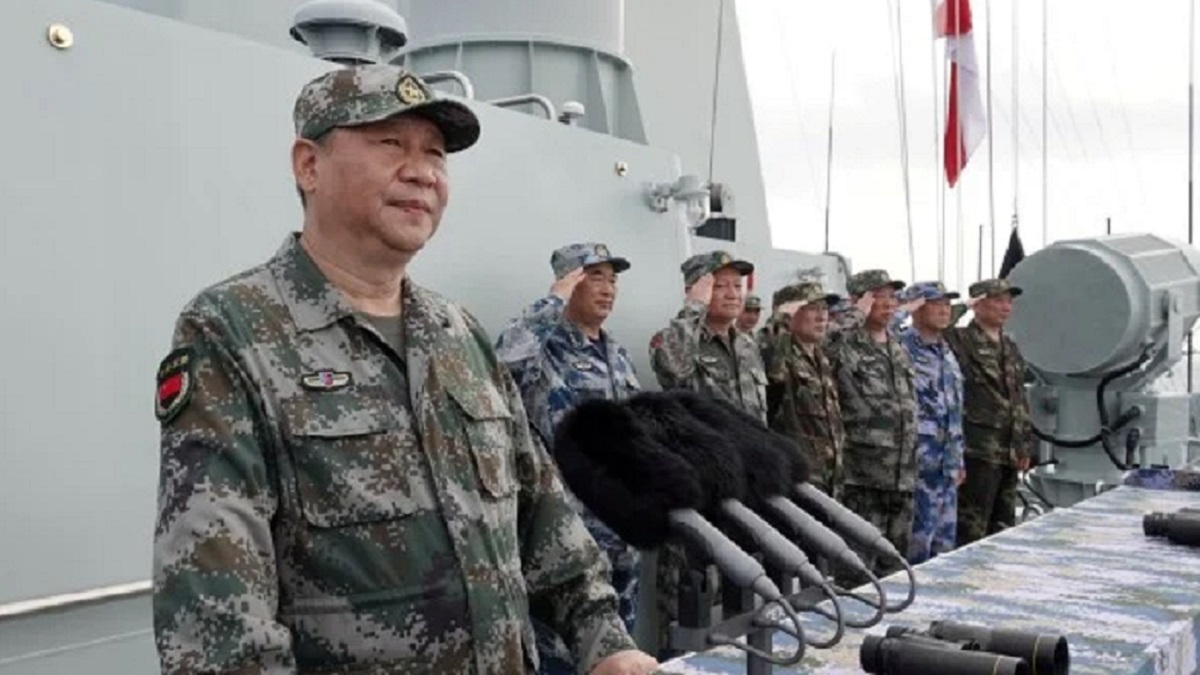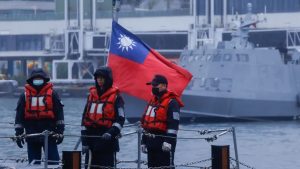
China’s Ambitious Plans for Military Bases in West Africa Revealed by Experts
China’s ambitions to extend its naval power globally have ignited speculation about its intention to establish military bases in West Africa, a strategic move that could substantially bolster its worldwide military presence, according to experts.
Brent Sadler, a senior research fellow at the conservative think tanks The Heritage Foundation, suggests that constructing new bases, either farther afield in the Pacific or along the Atlantic coast of Africa, would significantly enhance China’s operational capabilities. He compared these potential bases to those of the United States, stating, “Their model is different, but, in many ways, at the end of the day, they’re going to have bases that resemble the United States.” Mr. Sadler shared these insights during an August 15 discussion at The Heritage Foundation.
Mr. Sadler also pointed out that China is currently building carrier strike groups that are expected to operate in a manner similar to those of the United States. To sustain such operations abroad, he argues that additional overseas bases would be necessary, in addition to China’s first overseas base established in Djibouti in 2017.
By potentially constructing a new base on the western coast of Africa, such as in Equatorial Guinea, Mr. Sadler suggests that China could further extend its capacity to support strike groups with essential supplies like munitions and fuel, while also enhancing its operational presence in the Atlantic.
Mr. Sadler speculated that the Chinese regime’s history of secrecy regarding military projects could indicate that plans for such a base, or at least negotiations for its placement, are already underway. He drew a parallel to China’s past denial of intentions to develop aircraft carriers until the construction of one became undeniable.
The potential for China to establish a military presence in West Africa is also supported by financial flows and resource investments from China to West African nations, according to Alexander Wooley, director of partnerships and communications at AidData, a think tank focused on analyzing government aid to development projects.
Mr. Wooley stated, “They’re going to have a base somewhere in that region. Which country it might be, they’re not revealing.” Aid Data’s recent report analyzing China’s investments in overseas ports, conducted under Mr. Wooley’s guidance, identified Bata in Equatorial Guinea as a leading contender for a new Chinese military base. The report notes that China has already invested over $659 million in enhancing the port, and it highlights Bata as an area where the Chinese regime has made significant progress in its expansion efforts.
While China’s naval development is outpacing that of the United States, the Chinese Communist Party (CCP) faces challenges due to its lack of formal allies similar to those of the United States. Unlike NATO or the more recent AUKUS alliance, the CCP lacks established defense alliances, making it less certain that its military presence would be welcome in various regions.
As China continues to expand its naval fleet, Mr. Wooley anticipates that it will seek additional overseas basing opportunities. He remarked, “I think it’s inevitable that the growth of the Chinese navy will continue in the next decade.” This growth is evident in the projected expansion of China’s naval forces to more than 400 vessels within the next two years, surpassing the U.S. Navy’s fleet of fewer than 290 vessels. When accounting for the Chinese coast guard and maritime militia forces, the total number of vessels could exceed 600.
While the United States maintains technological superiority in naval capabilities, the majority of China’s fleet is currently stationed within 300 miles of its coastline. This positioning could potentially provide China with an advantage in the Indo-Pacific region in the event of conflict. (The Epoch Times)















Comments